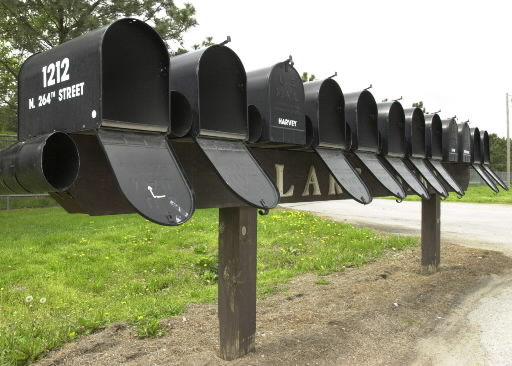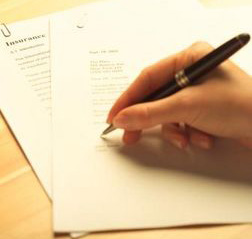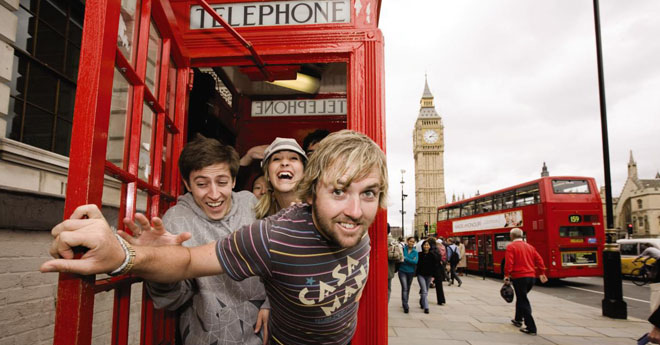английский за проф направлением. Укладач Триполець В.І. Рецензенти
 Скачать 4.04 Mb. Скачать 4.04 Mb.
|
|
| Opening Paragraph | Closing Paragraph |
| 1. I'm writing to ask you for some advice. | a) They are looking forward to your coming. |
| 2. In your last letter you asked me about Mary's children. | b) I'll be very much obliged for any consideration. |
| 3.1 enjoyed my stay at your cousin's. | c) Remember me to John. |
| 4. It was so nice to learn about your marriage. | d) I hope to see you and your husband soon. |
| 5.1 miss you a lot. | e) Please keep me informed as to how you are getting along. |
| 6. I'm writing to apologize for my long silence. | f) Please keep in touch. |
10. You want to book a room for a dancing party that you and your friends are organizing. Look at the advert for a possible room. Plan a letter asking if the room is available for the night you need. Use the notes to help you.
Room available in a large out-of-town building.
Suitable for up to 200 people, wild parties.
Easy to get to.
For more details, enquire in writing, giving details of
why you want to use it to
Mrs James, 218 Oxford Street, Chippenham.
Write the addresses in the correct position.
Think about how to open your letter.
Say why you are writing, refer to the advert.
Ask for details to be sent to you.
Close your letter.
Do you know the name of the person you are writing to?
III. Speaking.
Write a letter to a person you would like to invite to your place. Your letter will have three paragraphs, each paragraph with a different idea. The following questions will be helpful. Use answers in future letters.
In the first paragraph you will invite your friend.
In the second paragraph you'll tell your friend why you would like to visit him.
In the third paragraph you will write about your plans: what you will do, where you will go when your friend comes.
a. What is the name of your friend/relative?
b. Why would you like to invite him/her to visit you?
c. When would you like to invite him/her to see you?
d. How long would you like him/her to stay with you?
e. Where would you like to take your friend (places to visit and see)?
f. What would you like to do while he/she is with you?
IV. Supplement.
Text 1
1. Read and translate the text.
THE POSTAL SYSTEM
For centuries people have used the postal system to exchange ideas with others in distant places. Before the telegraph, telephone, radio, and television were invented, the postal system was the only safe way of getting news from and giving news to people in faraway places. Today the postal system is an important and economical means of communication.

Processing a letter that has been mailed involves several steps. First, postal employees pick up mail from the box and put it into mailbags. Then the bags are placed in a truck and driven to the post office. In large post offices, postal clerks empty the mailbags into a machine that sorts the letters according to size. This machine feeds the letters into another machine called a facer-canceller. The facer-canceller arranges the letters so that they all face the same way. Then it cancels (marks) the stamps on the envelopes so they cannot be used again. It also prints the date and location of the post office on the envelope. Then another machine is used to separate the letters according to their general destination. In small post offices, however, the postal clerks do all this work by hand.
After the mail is sorted, it is placed into mailbags and transported by airplane, truck, or train to the post office closest to its destination. There the mail is sorted into local areas. When a letter carrier is given the mail for a certain area, he/she separates it according to street and house number. Then the letter is carried to its destination.
2. Complete the sentences.
1.Stamps are ... so they can't be used again.
a) destroyed; b) damaged; c) controlled; d) cancelled;
In small post offices, the mail is sorted by... .
a) letter carriers; b) machine; c) trucks; d) hand;
The postal system is a(n)... means of communication.
a) expensive; b) unusual; c) economical; d) difficult;
Postal employees pick up the mail and put it into... .
a) mailboxes; b) mailbags; c) letter carriers; d) stamps;
A... delivers the mail to its destination.
a) facer-canceller; b) letter carrier; c) plane; d) machine.
Text 2
1. Get some more information.
SIGNING LETTERS

When people write an address on an envelope, they don't always write full words. A short way of writing a certain word is called an abbreviation . An abbreviation gives letters that are a clue to the word. A full stop usually follows an abbreviation.
2.Read the abbreviations below.
Avenue — Ave., Court — Ct., Drive— Dr., Missis — Mrs., Professor— Prof, Route — Rte., Boulevard — Blvd., Doctor — Dr., Mister — Mr., Place — PL, Road — Rd., Street — St.
8. Geographical Position
Географічне положення
I. Vocabulary.
1. Suggest Ukrainian equivalents for:
To be washed by; to separate from; 23 km wide; to be varied; to be founded by; thanks to; to be limited by; to be in power.
2. Learn the following word combinations.
| to be known to have the opportunity maritime climate hand in hand the House of Commons the House of Lords Trafalgar Square |
мати можливість
приморський клімат
пліч-о-пліч
палата общин
палата лордів
Трафальгарська площа
3. Make up sentences:
| Great Britain is London is |
- situated on the British Isles;
- divided into 55 countries;
- a parliamentary monarchy;
- washed by the North Sea;
- washed by the Irish Sea;
- known for its fogs and frequent rains;
- situated in the Atlantic Ocean;
- the capital of Great Britain;
- situated on the banks of the river Thames;
- divided into four main parts;
- the cradle of British tradition and culture.
4. Fill in the gaps with necessary words:
٧ Great Britain ... on the British Isles (is situated, lie, stands).
٧ Agriculture is one of the largest and most important ... in Great Britain (work, activities, occupation).
٧ The language spoken here is English, but Welshmen, Scottish, and Irishmen ... their own language in addition to English, (talk, say, tell, speak)
٧ The British museum is ... for its library reading-room and the collection of manuscripts (well-known, famous, and marvellous).
٧ Big Ben, the famous ... is one of the Towers (square, monument, and clock).
II. Reading.
Read and translate the text.
GREAT BR1TAIN
In everyday speech, "Great Britain" is used to mean the UK. The United Kingdom of Great Britain and Northern Ireland occupies the territory of the British Isles which are situated to the north-west of Europe. They consist of two main islands: Great Britain and Ireland. England is in the south of the island of Great Britain, Scotland is in the north and Wales is in the west. Northern Ireland is situated in the north-eastern part of Ireland. It is one thirtieth the size of Europe.

Great Britain is surrounded by seas on all sides. Its western coast is washed by the Atlantic Ocean. In the east the island of Great Britain is washed by the North Sea. The Irish Sea, the North Channel and the St. George's Channel separate Ireland from Great Britain. Great Britain is separated from France by the English Channel, which is 32 km wide in its narrowest part. Still there are many lakes in Scotland. The most beautiful is Loch Lomond. There are no big rivers in Great Britain. The biggest are Severn and Thames. There is a lot of mountain in Great Britain, but they are not high. The highest mountain — Ben Nevis — is in Scotland. The flora of the British Isles is much varied and the fauna is similar to that of the north-west of Europe. The country is not very rich in natural recourses.
London is the capital of the UK. It was founded by the Romans. The population of London is over 8 million people. The largest cities of Great Britain besides London are: Birmingham, Glasgow, Liverpool, Manchester, Sheffield, Bristol, Leeds, and Edinburgh. The most important seaports are: London, Liverpool, Belfast, Glasgow and Cardiff. Oxford and Cambridge are University cities. Great Britain has a very good position as it lies on the crossways of the sea routes from Europe to the other parts of the world. There are many countries which are connected with Great Britain by sea. Thanks to Gulf Stream the climate of Great Britain is mild. It is often foggy and rainy. The summer is not very hot and the winter is not very cold.
Great Britain is a highly developed industrial country. It lives by manufacture and trade. Its agriculture provides only half the food it needs, the other half of its food has to be imported. Britain is one of the most highly industrialised countries in the world: for every person employed in agriculture, eleven are employed in mining, manufacturing and building. The main branches of British economy are engineering, mining, ship-building, motor vehicle manufacturing, textile, chemistry, electronics, fishing and food processing. The industrial centers of Great Britain are London, Manchester, Birmingham, Leeds, Liverpool, Sheffield and others.
As to its political system it is a constitutional monarchy. The power of the Queen (now Elizabeth) is limited by Parliament which includes two Houses — the House of Commons and the House of Lords. The Prime Minister is usually the head of the party which is in power. There are the following parties there: the Conservative Party, the Labour Party and the Liberal Party. Great Britain is a country of strong attraction for tourists, especially in spring and summer. The charm of it lies in its variety of scenery: the finest combination of sea and high land, the valleys of South Wales, the smiling orchards of Kent, the sea lakes of Scotland, its fields and woodland parks — everything is quiet and green.
III. Post-reading activities.
